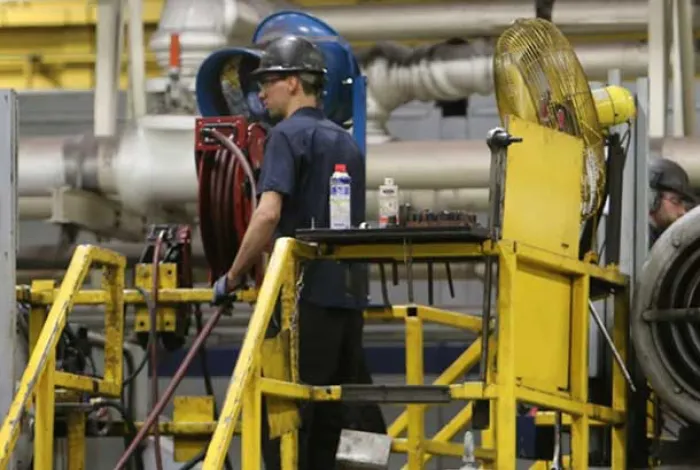

Now Available!
Get your copy of the 7th Annual State of Smart Manufacturing and hear from 300+ manufacturers in this new survey report!
Subscribe to Our Blog
For a monthly digest of expert insights, data points, and tips like the ones in this article.

You grapple with operational challenges every day. It’s the nature of manufacturing with so many variables that go into making products. Getting a handle on these challenges is also do or die, because production must continue to meet customer demands. So, you do whatever is necessary to get inventory under control, respond to audits, reduce waste, and manage quality.
This might mean going outside your existing systems to just get it done or handling things manually. Not only is this inefficient but it also encourages siloed processes that make it difficult to track activities, look back on what happened, or accurately forecast what may happen. Connected manufacturing, the ability to connect all facets of your manufacturing operation, enables you to address these operational challenges and leverage a single source of truth to make more informed decisions about your business.
1. Lack of Inventory Control
You envision your shop floor as a well-conducted network of operators, machines, and materials all driving toward meeting customer demand. In reality, it often is more chaotic than controlled. By capturing all shop floor activities, “digitizing” them, and then automating operational processes however, you create a connected shop floor. With the right system, you also know what’s happening in real time. The more connected and automated the processes on your shop floor, the more visibility and control you have of your operations.
2. Quality Assurance Validation
Part of doing business means complying with quality customer requirements. If you’re like many of the manufacturers we’ve helped however, you’re probably scrambling to gather the documentation needed to prove compliance. Your system should make it easy—not more difficult. A connected shop floor means you're measuring and digitally archiving quality during production. Providing documented proof is just a mouse-click away.
3. High Expediting Costs
When you don’t have visibility into the shop floor or your supply chain, you often need to expedite orders to meet delivery commitments. Costs can start to soar very quickly. Modernizing and consolidating systems and data can give you the visibility, communication, and collaboration you need to cut costs and always deliver on time.
4. Manual Processes
Manual or paper processes and data entry mean you risk mistakes and errors. Are there areas of your business where errors occur most frequently? What if you could mistake-proof those areas? Automated systems create better workflow, reduce human error, free up valuable resources, increase data accessibility for better decision making, improve quality, increase production effectiveness, and deliver higher uptime for increasing overall equipment effectiveness (OEE).
5. Slow Response to Supply Changes
You need to be agile to the ebbs and flows of production. Do your systems enable you to gain visibility throughout your global supply chain? If not, you will be reacting instead of meeting (or exceeding) customer demands. Your systems should enable you to know exactly what’s happening on the shop floor and in your supply chain, in real time.
The solution is a fully-integrated and automated manufacturing system that enables connected manufacturing, and your competitive advantage. Our customers tell us this all the time. Discover what they already know by downloading: The Definitive Guide to Connected Manufacturing.

